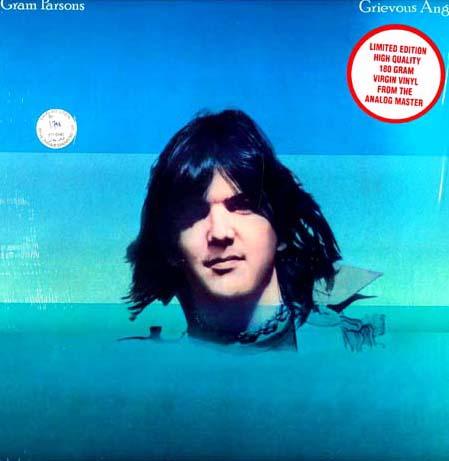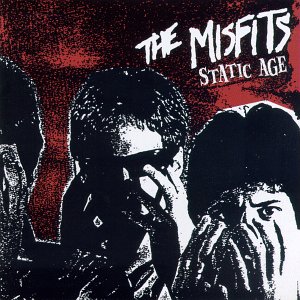
GRIEVOUS ANGEL
I'll Never Get Out of this World Alive
Gram Parsons descends upon a band like a plague that bears both love and locusts. Like a hostile alien in so many sci-fi films (or maybe a tape worm), the Harvard troubadour devours a band and instantly his involvement will usher in a flood of creative energy, refreshing takes on decade old tunes, and some of the most heartfelt interpretations on heartbreak in the popular music canon. However when Parsons departs he leaves the band in ruins, struggling to find a voice. Examples? The International Submarine Band didn’t really exist without him. The Byrds were down to just old Roger and his twelve string once Gram lured away Chris Hillman. The Flying Burrito Brothers were an only child. Even the Rolling Stones were wise enough to separate themselves from this romantically feverish pariah before Keith became TOO stoned to play. This all being said, of course it was only a matter of time that Parsons would desert his own solo career by, well, dying. Before he left, Gram did leave us with one of his crowing achievements: Grievous Angel.For me, it is impossible, in this case, to separate the legend from the music. The Harvard drop out from a rich but troubled family who, like the wandering minstrels of yore, traveled from band to band. In between he slummed with Keith Richards at Nellcote, stole the Byrds from underneath Roger McGuinn, and did a great deal of cocaine. Even after death, Gram remains an enigma whose body was stolen right from its grave by his manager. The idea of this coked out purveyor of “cosmic American music” only enhances the desperation and loneliness of his material. Aiding Gram, who produced the album himself, were no shortage of fine, more level headed, musical talents led by ex-Elvis/Orbison picker James Burton, reverberating pedal steel by in-demand session man Al Perkins, barrelhouse piano by Glen Hardin, and of course, the close harmonies of Ms. Emmylou Harris. Mr. Parson’s did his best singing with a partner and like Chris Hillman, Ms. Harris didn’t wiggle into the spotlight but haunted from the wings, shifting with his mournful cries.
On "Return of the Grievous Angel", Parsons sounds a little hazy and liquored up but his voice lifts over the smoky room surroundings. It gives me chills just to listen to his voice on the chorus and the way he bends the notes on the word ‘town’ and how his voice jumps the octave on the final repetition. A particular standout is the not-quite-live "Quebec Medley", recorded in the studio with "live" bar sounds such as hoots, hollers and breaking glasses overdubbed later by a gaggle of cohorts that included the legendary Kim Fowley. His take on “Cash on the Barrelhead”, with its lighting quick banjo picking is less Louvin Brothers than country Chuck Berry. The Grievous Angel rendition of “Hickory Wind” is definitely superior to the Byrds version if only for the Harris harmony part.
I first heard “Love Hurts” as sung by Nazareth in the movie Dazed and Confused. Then I listened to the Roy Orbison take in which the original pope of mope placed his unmistakable stamp on a heartbroken hero. But here Parsons and Harris do the impossible. By singing in unison, rather than solo, the song somehow becomes lonelier and more desperate. Will he hit the notes? Will they get together? It’s the definitive version of an American songbook classic. “Ooh Las Vegas”, a Parsons original with Rick Grech, is a fantastic rocker with clever lyrics about, perhaps the closet thing in the 1970s to the Old West. Those bass riffs that form the basis of the tune keep it moving at a driving speeding, giving plenty of room for Perkins’ own rhythmic phrases to duck in and out. The final Burton picked solo during the fade out leads the listener to the last second. The final number is a death bed plea full of, like the man himself, contradiction. “In My Hour of Darkness” is hopeful and exuberant but deadly and lulling. He really sounds like a man, at his wits end, who is trying to hold it together and sing the best he can gosh darn it. The Grand Ole Opry is collapsing around him but Parsons will keep belting through it all. The fact that this LP was released posthumously only enhances the last writ ambiance of the track. Harris, joined by Linda Rondstadt, creates a white gospel choir of heavenly angels lifting our balladeer away.
Those who shun country music on principal or are only using Carrie Underwood and Toby Keith as their examples, don’t know what they’re missing. Gram may not be “purist country” but he reflects the genre’s spirit and, as the song goes, “lived the life you sing about in your songs”. Hank Williams, where ever he is on that old lost highway, would be beaming.



.jpg)